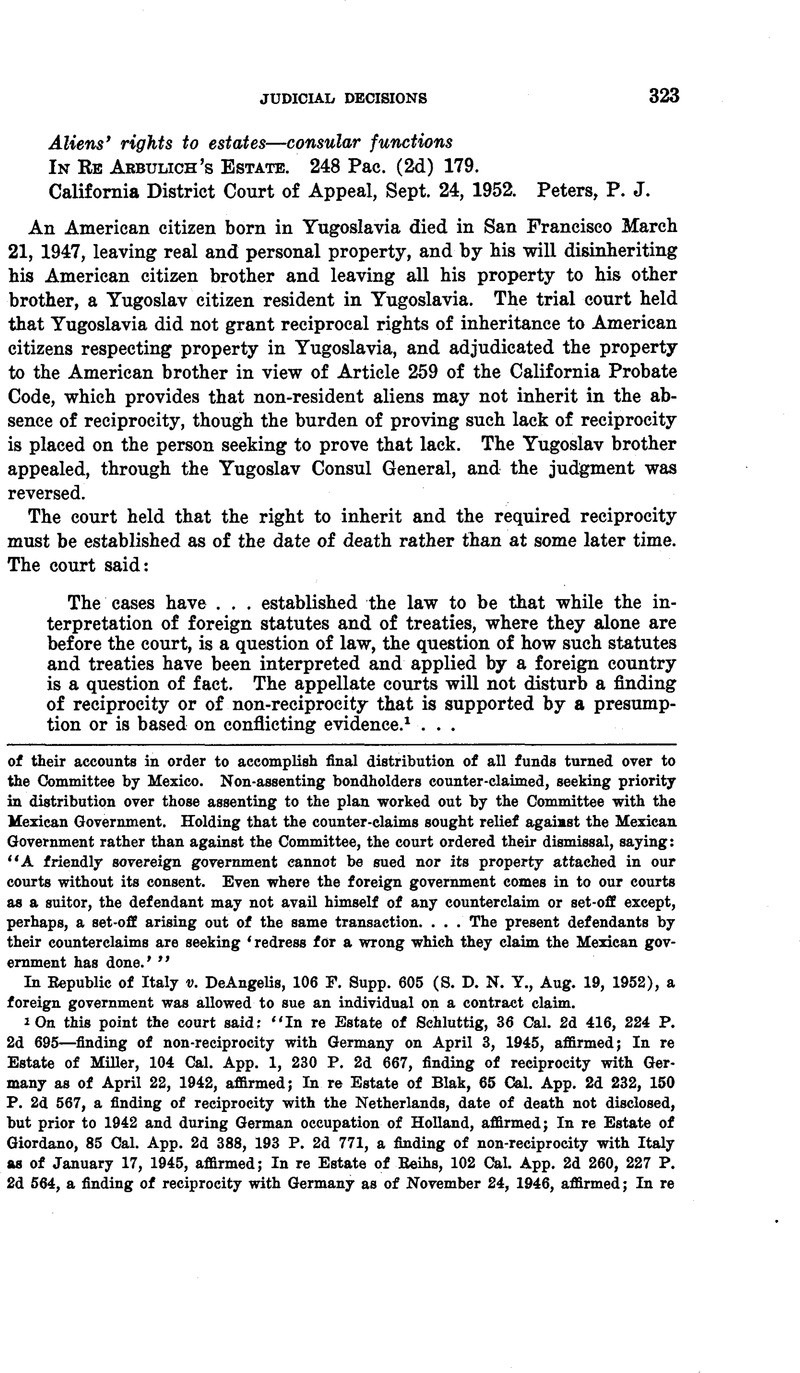Published online by Cambridge University Press: 20 April 2017

1 On this point the court said; “In re Estate of Schluttig, 36 Cal. 2d 416, 224 P. 2d 695—finding of non-reciprocity with Germany on April 3, 1945, affirmed; In re Estate of Miller, 104 Cal. App. 1, 230 P. 2d 667, finding of reciprocity with Germany as of April 22, 1942, affirmed; In re Estate of Blak, 65 Cal. App. 2d 232, 150 P. 2d 567, a finding of reciprocity with the Netherlands, date of death not disclosed, but prior to 1942 and during German occupation of Holland, affirmed; In re Estate of Giordano, 85 Cal. App. 2d 388, 193 P. 2d 771, a finding of non-reciprocity with Italy as of January 17, 1945, affirmed; In re Estate of Reihs, 102 Cal. App. 2d 260, 227 P. 2d 564, a finding of reciprocity with Germany as of November 24, 1946, affirmed; In re Estate of Kennedy, 106 Cal. App. 2d 621, 235 P. 2d 837, a finding of reciprocity with Romania as of March 15, 1949, affirmed. In all of these cases it was held that where the finding of reciprocity or non-reciprocity was based on conflicting evidence or supported by a rebuttable presumption it would not be disturbed by an appellate court, even where, as to the same country, one trial court had found reciprocity to exist and another that it did not.”
2 This Journal, Vol. 42 (1948), p. 201.
3 See also In re Niggol’s Estate, 115 N. Y. 8. (2d) 577 (Surrogate, Suffolk County, Sept. 12, 1952), where the recognized Estonian Consul was authorized to receive funds for distribution to Estonian nationals resident in the American and British Zones of Germany, in Canada, and in New Mexico; but was not given funds for transmission to an Estonian resident in Estonia (in view of the Soviet occupation and annexation in 1940). This was under the treaty of 1925 with Estonia, 44 Stat. 2388.